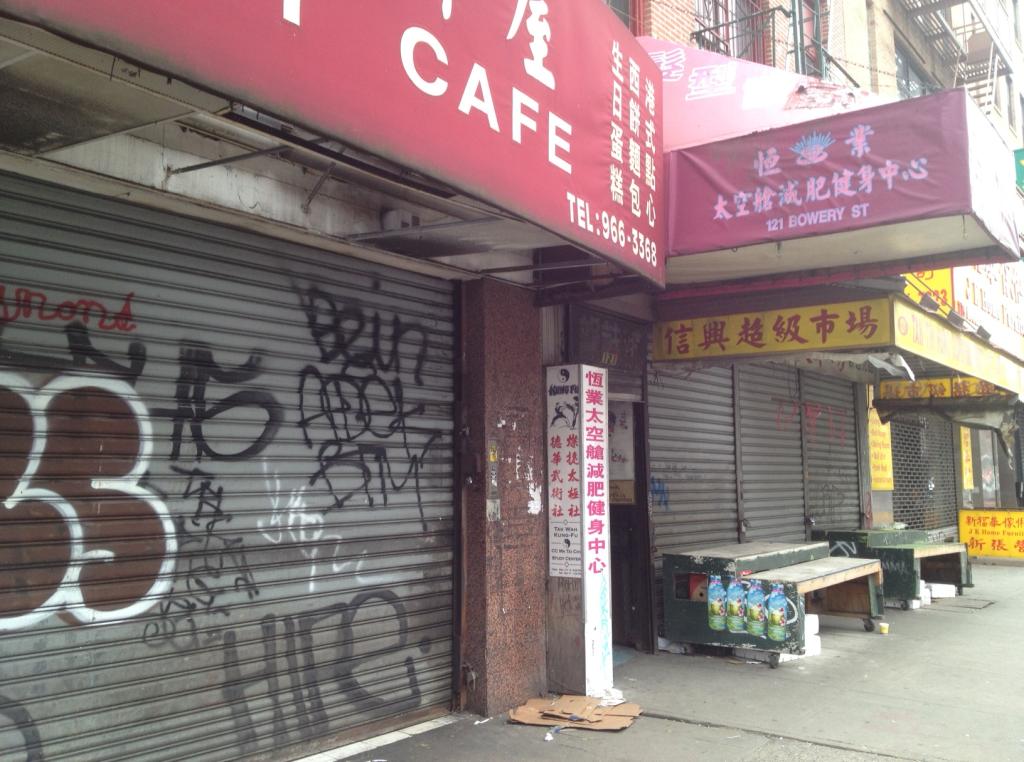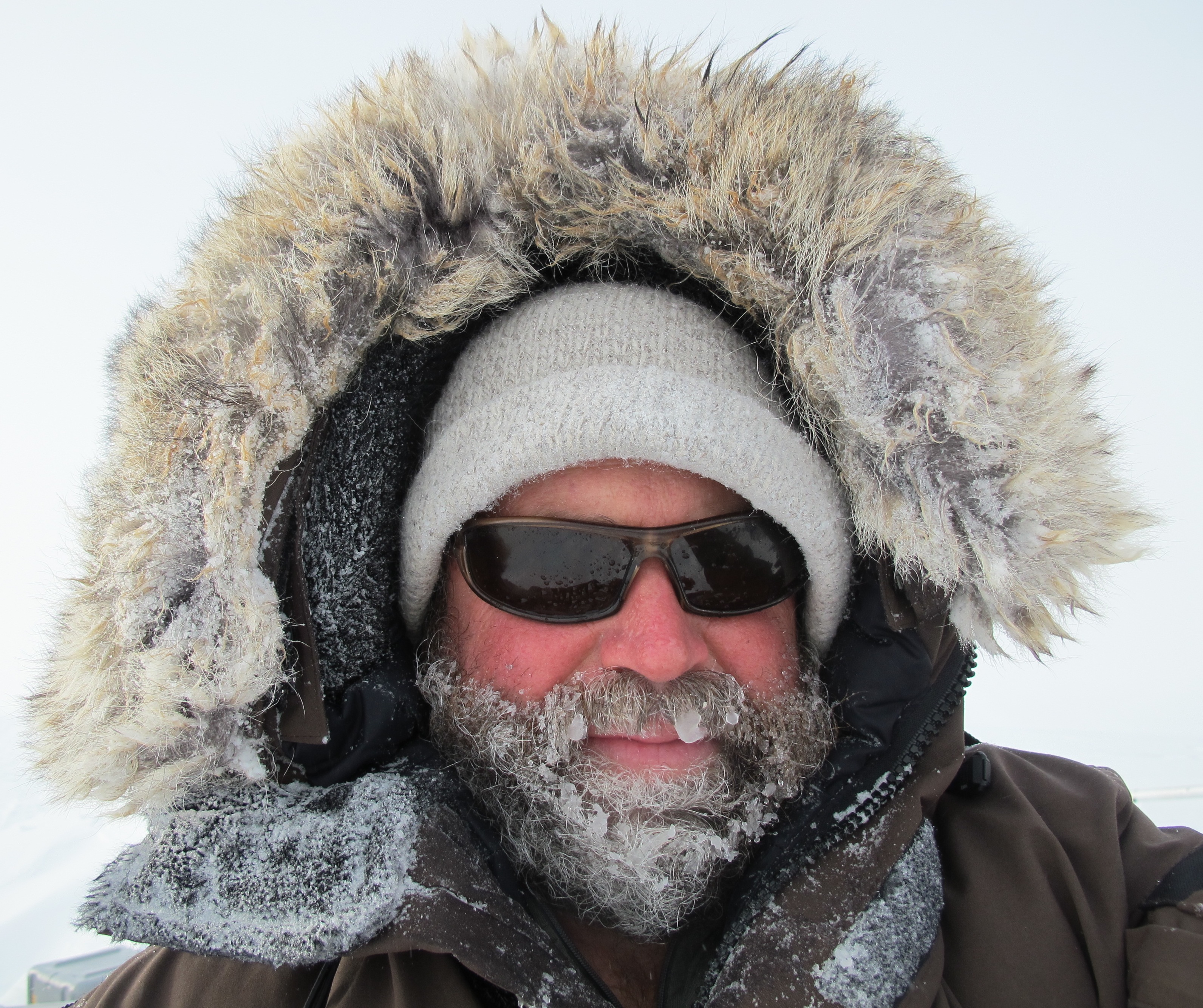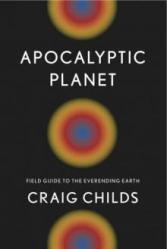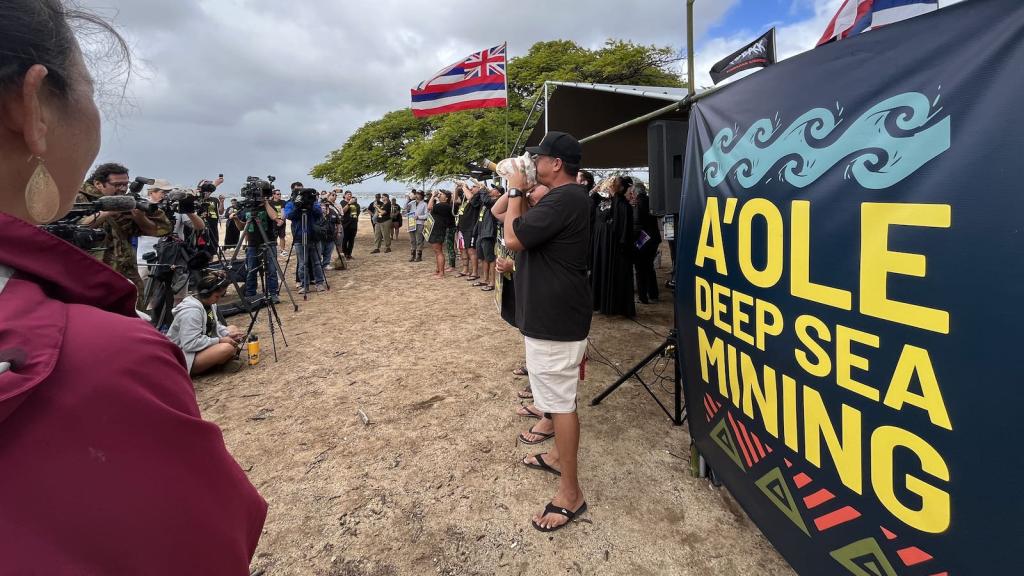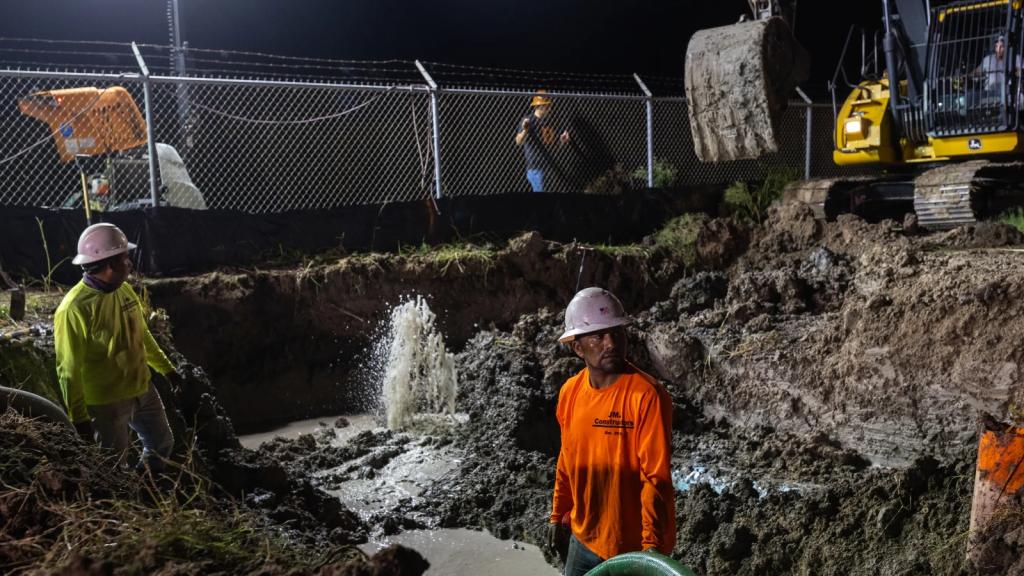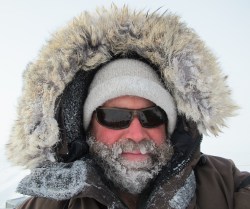
It’s something of a miracle that Craig Childs wasn’t in Atlantic City or New York when Sandy roared ashore earlier this week. It’s not that he lives there — he and his wife and two young sons make their home at the base of a volcanic monolith in the Colorado boondocks. It’s not even that the author and adventurer spends a good part of his time actively courting cataclysm — his latest book, Apocalyptic Planet: Field Guide to the Everending Earth took him to areas of upheaval (geologic and otherwise) around the globe. It’s just that he has a way of showing up, serendipitously, right when everything goes to hell.
On the morning of Sept. 11, 2001, Childs, who has written almost a dozen books about the desert Southwest, archaeology, and wild animals, was in lower Manhattan, on his way to meet literary agents. “I was walking crosstown so I didn’t see what was going on, but there were emergency vehicles streaming down Fifth Avenue, and I could see people coming out of the subway station and popping up to the surface and being riveted by something overhead,” he says. “I came around the corner right after the second plane had hit, and pretty much just stayed down there until the first tower fell.”
Apocalyptic Planet opens with a scene of Childs, passed out in a friend’s L.A. apartment after a trip in the wilderness, awakened by an earthquake that rattles the walls and hurls books from the shelves. “In those moments, my picture of the earth was remade,” he writes. “The floor felt as if foot pedals were pumping beneath me, a continental margin humped up on he back of a tectonic pate. Humans may have a big hand in carpeting the atmosphere with heat-trapping gases and dumping every toxin we can imagine into the waterways, but when the earth decides to roll, it is no longer our game.”
Nor is it our game when the earth decides to whip up a megastorm and hurl it at the Eastern Seaboard — though we likely had a hand in creating that monster. Or when it decides to reclaim farmland and cities with desert and sand dunes, or obliterate entire landscapes with tsunamis or volcanic ash — all scenarios that Childs explores in Apocalyptic Planet.
Sound scary? This week, I caught up with Childs, who I’ve known for a decade or so, to talk about Hurricane Sandy, our cultural obsession with the End Times, and why he thinks “things are not as dire as we think — but they could be much more dire than we imagine.”
Q. Where were you when Sandy made landfall?
A. I don’t know where I was. I guess I was driving back to Colorado from the West Coast, crossing through Nevada, where everything was clear and beautiful in the desert, thinking, “What? Hurricane? Who? New York? Where’s New York?” How’d I miss that?
Q. When something like 9/11 or Hurricane Sandy takes out New York City, it comes as such a shock. New York seems so powerful.
A. And permanent. Changeless. It is such a created landscape that you think that humans are dominating. And for the most part, we do dominate there. We have fabricated these wonderful systems that keep things level for us, but even on small scales, even when it just rains, it gets our attention, much less when something big like Sandy happens.
Q. Your new book is a big old reminder that Mother Nature is out there kicking ass and could arrive at our doorsteps any day.
A. Yeah, and that it’s always there, it’s always pushing and pulling. Even without the specter of anthropogenic climate change and everything that we’re talking about now, this still is a planet that changes dramatically, regionally and globally. This hasn’t taken a hiatus for us. We like to imagine that nothing will change. Everything will change, and it’s becoming more likely as we continue to push on the planet.
Q. Is there something hard-wired into humans that makes us unable to react to these larger forces and long-term changes?
A. I don’t know if it’s even humans. I think it’s just systems. Systems seek an equilibrium, and we seek ours. I think humans are actually really good at adapting and changing. I think we’re one of the most cunning and adaptable species on the planet. But we create a system and try to hold onto our equilibrium, and that equilibrium is business as usual.
I think that given enough time, humans will figure things out. I actually think we’re gonna be around for a really long time. In what form, who knows. What kind of societies — that’s hard to tell. But we know how to survive. A city can be taken down or a civilization can be taken down and we’ll snap to it. We’ll figure out how to keep eating and breathing.
Q. You’ve spent a lot of time writing about the Anasazi, who allegedly vanished from the desert Southwest. Do you think that gives you a different perspective on all this?
A. Yeah, we have this story of annihilation, sudden disappearance, mysterious ending. But whenever you look closer at something, you find, oh, it’s not as black and white as we imagined.
In the Anasazi world a thousand years ago, they had huge droughts that really put them under social stress that led to warfare, massacres, mass migrations. But when you follow them, you find out, oh, they migrated, they went somewhere else, and here’s how they trickled down through the landscape over centuries. And you find that they’re still alive: They’re the Hopi, the Zuni, the Acoma people, the Tewa.
Q. Your book is about the apocalypse — and as children of the Cold War, I think we both grew up with this nagging feeling that everything could come to a screaming halt at any second. But your version of the apocalypse isn’t any more final than the Anasazis’ “disappearance.”
A. We imagine this flash of light and it’s all over. Well, no, it doesn’t happen that way. It happens like Hurricane Sandy happens, where it suddenly spikes and you get a change and then you adapt and you get another one.
The Eastern Seaboard is going to be hit by other major storm surges, maybe not for 20 years, maybe not for 50, maybe not for 100. But if you want a city like New York to continue standing, you need to think about it being hit again and again and again by storms like this. Sea levels are rising, ocean temperatures are warming up, so likelihoods are increasing. And you can just cross your fingers and hope for your own resilience and go, OK, well, we’ll build back whenever it happens and return to normal. Or you could look into storm surge barriers and you could change the way that the city relates to the landscape, relates to the climate.
Q. Which path do you think we’ll take, now that you’ve written this latest book?
A. Well, I had gone into it expecting this to be kind of a dire project, that I was gonna come away from it thinking, “Oh my god, it’s all lost.” But I actually came away from it thinking, no, there’s a lot of good stuff happening, and chances of worst-case scenario are, as usual, slim.
I mean, there were some moments in the thick of the book where I was going through climate research and just going, “Oh no. It really is dire. There is no way out. This planet is going to be a burned-out rock before we know it.” And then I looked at other research that didn’t really contradict what I was reading but just said hey, look over here in this corner. Look at the species resilience in the midst of an extinction. Look at the way that humans adapt, have adapted in the past.
When you’re looking at civilizations in the past that have fallen, you see that, oh, well, some of it has fallen, but other parts are rising. The point of no return doesn’t exist. I mean you never return. You’re always at the point of no return, in a way. But I came away thinking, things are probably gonna work out, but we have to work our asses off in order for that to happen.
Q. In your book, you talk about how you and your wife, Reagan, always had a contingency plan, just in case something really bad went down while you were off traveling and you guys needed to find each other. Do you still do that?
A. Not as much as we used to, but we still think about it a little bit — not because we’re expecting it to happen, but just because it does happen. If something went wrong you’d want to have thought about it beforehand. If we were in a Hurricane Sandy situation, I’m gonna wish I had said before I saw her last: So where do you wanna meet? Where do you wanna leave a message?
Q. Because chances are you’re gonna be right in the middle of it when it arrives.
A. Chances are …
